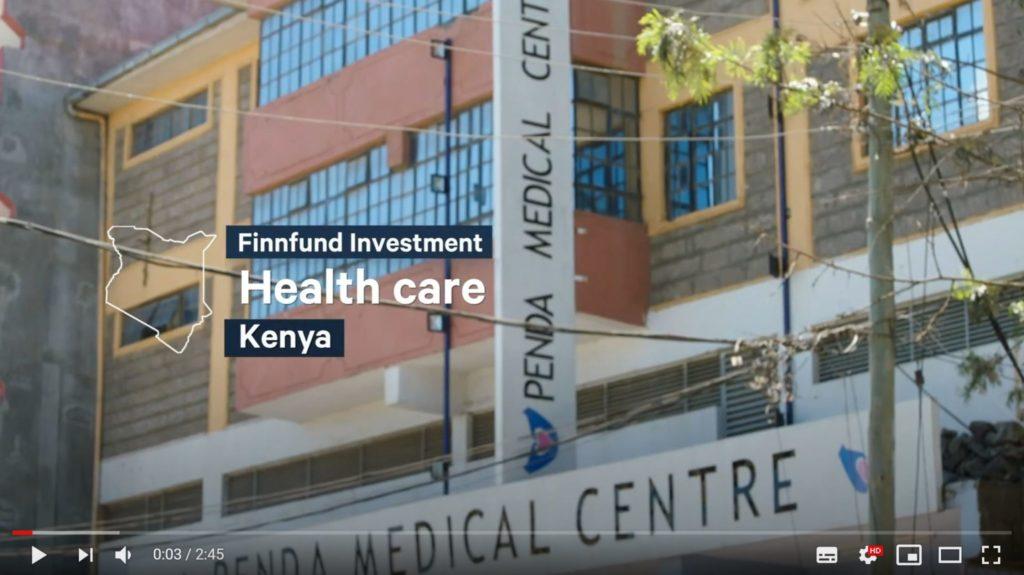December 1, 2020
COVID-19 underlines the need for accessible healthcare
![]() I was invited as one of the panelists to attend a webinar about healthcare investments in Africa. The main question there was how the ongoing pandemic has reshaped the healthcare investment landscape. Some things may have changed during this very exceptional year but in my opinion, most things have not. We are a long-term impact investor, and our mandate is to help companies grow. This fact hasn’t changed. If anything, COVID-19 has made us all aware of how important it is to have sufficient reliable healthcare resources. Many of our target countries have public healthcare systems that are currently not able to meet the needs of the growing populations.
I was invited as one of the panelists to attend a webinar about healthcare investments in Africa. The main question there was how the ongoing pandemic has reshaped the healthcare investment landscape. Some things may have changed during this very exceptional year but in my opinion, most things have not. We are a long-term impact investor, and our mandate is to help companies grow. This fact hasn’t changed. If anything, COVID-19 has made us all aware of how important it is to have sufficient reliable healthcare resources. Many of our target countries have public healthcare systems that are currently not able to meet the needs of the growing populations.
The pandemic doesn’t stop all other medical needs
Basic health services are still very much needed in Africa, so in that way the investment landscape hasn’t changed that much. Many healthcare companies have suffered because of this crisis, especially the ones which provide preventative and specialty health services, such as dental care companies and outpatient medical clinics. In some countries the lockdowns have been very strict and on the other hand people have simply been too afraid to go to hospitals or to see their doctors and thus postponed their visits. This obviously leads to serious issues in the long run. What happens when people miss their cancer screenings and basic vaccinations? How will the healthcare providers be able to take care of the inevitable consequences?
COVID-19 and due diligence
Our role as a DFI is not to hold back when times are difficult. Actually, it’s quite the opposite. DFI’s are needed more than ever because some private investors are more cautious and in stand-still in their investments. Even though COVID-19 hasn’t stopped us from making new investments, it has of course entered into our due diligence process. In addition to our normal processes, we now analyze the management’s COVID action plan, including financial and preventative aspects. We want to know how a company is protecting their employees and patients.
We have a team dedicated for environmental and social questions and even pre-pandemic, we have been focusing a lot in these topics when we do our due diligence. We make sure the people working for the company are qualified, the proper procedures are in place and we require the companies to follow best practices and IFC’s performance standards. Not being able to travel has created a challenge for reviewing the environmental and social aspects. My colleagues explained how they have handled it in a blog post.
Accessibility, quality, affordability
Our keywords for new investments are accessibility and quality. Affordability is a target as well – we always look at the pricing of the service in relation to other operators and do an analysis of the income level of the customers.
Creating jobs for healthcare professionals is also very important. For example, Humania, a private healthcare company developing a network of multispecialty hospitals and healthcare assets in Egypt and Morocco, is expected to employ more than 6 500 people when fully operational. This prevents the talent from moving abroad in search of a better job as well as guarantees the quality of healthcare services.
Future is (also) digital
The webinar audience brought up the question about digitalization and what we think it means for healthcare. I’m so happy that came up – we have been screening companies around telehealth, digital diagnostics and payment services but so far, we haven’t made any investments. We do believe that the overall expectation from the patients is that if they are using telehealth services, they would like to have the option to see a physical point as well. In addition, not all health services can be provided remotely. This is why the existing chains of medical centres and hospitals should be investing in digitalization and telehealth services. Patients should be given a choice. Our investee company Penda Health runs 17 medical centers in Nairobi and their mission is to make quality healthcare available and accessible near their customers. They have recently invested in developing digital healthcare and are currently gathering experiences of how it affects both the employee and customer satisfaction. We, too, are very keen on following how things are proceeding on this front.
Markus Pentikäinen
Investment Manager
Finnfund

